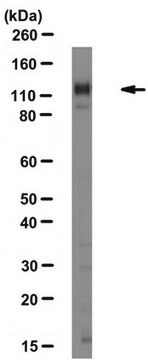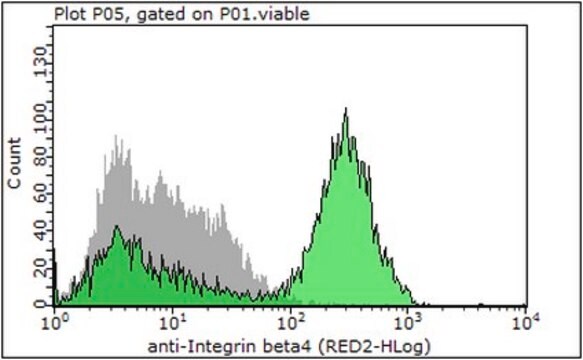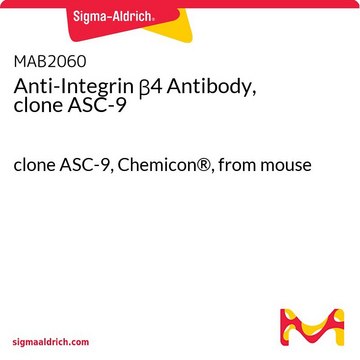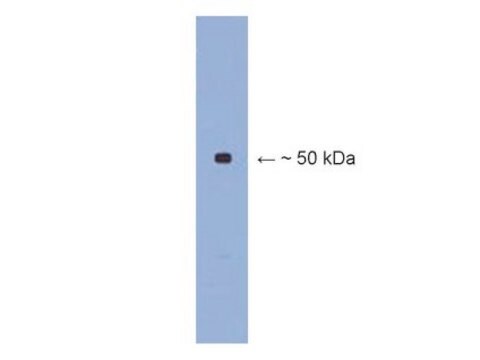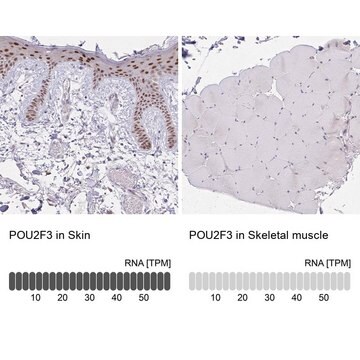MAB2058
Anti-Integrin β4 Antibody, clone ASC-3
clone ASC-3, Chemicon®, from mouse
Sinônimo(s):
CD104
About This Item
Produtos recomendados
fonte biológica
mouse
Nível de qualidade
forma do anticorpo
purified immunoglobulin
tipo de produto de anticorpo
primary antibodies
clone
ASC-3, monoclonal
reatividade de espécies
human
fabricante/nome comercial
Chemicon®
técnica(s)
flow cytometry: suitable
immunohistochemistry: suitable
immunoprecipitation (IP): suitable
Isotipo
IgG1κ
nº de adesão NCBI
nº de adesão UniProt
Condições de expedição
wet ice
modificação pós-traducional do alvo
unmodified
Informações sobre genes
human ... ITGB4(3691)
Especificidade
Imunogênio
Aplicação
laminin and laminin GD-2 peptide, but not to EHS laminin, type IV collagen or fibronectin. Does not inhibit SKOV-3 cell adhesion to laminin, fibronectin or type IV collagen.
Immunohistochemistry: on acetone-fixed frozen human epithelial tissues including tongue, foreskin and ovary. Not for use on formalin-fixed tissue.
Flow cytometry: stains human squamous cell carcinoma (SCC9), ovarian carcinoma (SKOV-3) and umbilical vein endothelium (HUVEC). Stains RKO or K562 cells transfected for CD104 expression. Does not stain monocytes, neutrophils, lymphocytes, T cells, B cells or platelets.
Immunoprecipitation: precipitates PAGE bands of 66, 76, 120, 135 and 200kDa (reduced) or 66, 110, 125, 130 and 190kDa (non-reduced) from surface-biotinylated SCC9 cells.
Working dilutions must be determined by end user.
Cell Structure
Integrins
Ligação
forma física
Armazenamento e estabilidade
Outras notas
Informações legais
Exoneração de responsabilidade
Não está encontrando o produto certo?
Experimente o nosso Ferramenta de seleção de produtos.
Código de classe de armazenamento
10 - Combustible liquids
Classe de risco de água (WGK)
WGK 2
Ponto de fulgor (°F)
Not applicable
Ponto de fulgor (°C)
Not applicable
Certificados de análise (COA)
Busque Certificados de análise (COA) digitando o Número do Lote do produto. Os números de lote e remessa podem ser encontrados no rótulo de um produto após a palavra “Lot” ou “Batch”.
Já possui este produto?
Encontre a documentação dos produtos que você adquiriu recentemente na biblioteca de documentos.
Nossa equipe de cientistas tem experiência em todas as áreas de pesquisa, incluindo Life Sciences, ciência de materiais, síntese química, cromatografia, química analítica e muitas outras.
Entre em contato com a assistência técnica